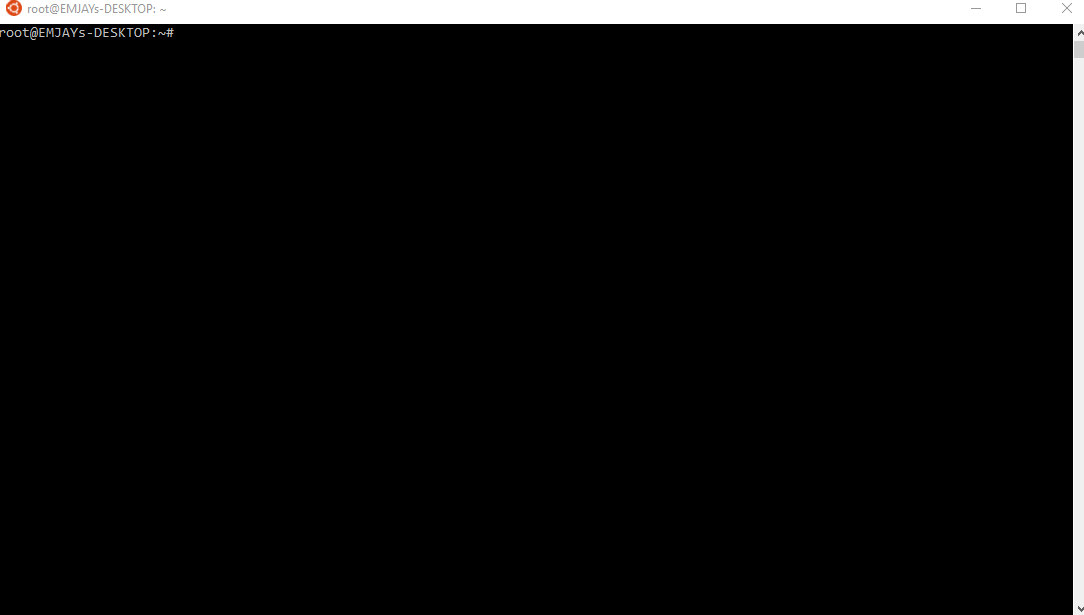node-farmer
v2.1.1
Published
A lightweight automation tool built for Linux machines
Downloads
49
Maintainers
Keywords
Readme
A lightweight automation tool built for Linux machines
|| AGENTLESS ~ BASH OVER SSH ~ PLUG N PLAY ||
node-farmer(nf) simplifies automation for 'admin/developer' or 'devops' in day-day IT life, could be simple package management, application deployment or complex configuration management, infrastructure management(cloud/non-cloud), services management and many other IT automation activities. It can manage any number of hosts/servers basically any host that runs 'bash'
Server-to-Server communication happens over SSH, pretty much everything runs over SSH which makes node-farmer a lightweight/agent-less automation tool. Programming/scripting like Java, Python, YAML is NOT required. Writing node-farmer(nf) inputs are as simple as putting bunch of commands in a file(see example here)
node-farmer(nf) execution mode is always parallel that means it can deploy/run on x number of hosts/servers all in parallel saving time money and everything.
// Demo //

// Workflow //
Standard workflow
Seed(Input) > Sow(Deploy) > Fruit(Snapshot)Reusability workflow
Fruit(Snapshot) > Sow(Deploy)// nf Terminology //
Seed : The input/instructions that runs on remote host/server
Plow : Scripting format used to build input/seed, uses extension .plow
Soil : List of remote hosts where input/instructions are executed
Sow : Deploy input/instructions on remote host(s)
Fruit : Snapshot/archive of configuration files(seeds & soils) from a successful deployment, can be reused in future
Feed : Re-deploy using an existing snapshot
Canal : Directory to store runtime temporary files and logs// Pre-requisites //
For Redhat/CentOS
$ yum update
$ yum install -y psmisc
For Ubuntu
$ apt-get update
$ apt-get install -y psmisc// Download & install instructions //
Minimal Install [NO ROOT]
$ curl https://raw.githubusercontent.com/disizjay/node-farmer/master/farmer > farmer; chmod +x farmer; mkdir canal fruits soils seeds;
$ ./farmer helpInstall with git [NO ROOT]
$ git clone https://github.com/disizjay/node-farmer.git
$ cd node-farmer
$ mkdir canal fruits soils seeds
$ ./farmer helpInstall with npm [ROOT REQUIRED]
For Redhat/CentOS
$ yum update
$ curl --silent --location https://rpm.nodesource.com/setup_6.x | sudo bash -
$ yum install -y nodejs && yum install -y gcc-c++ make
$ npm -g install node-farmer
$ mkdir canal fruits soils seeds
$ farmer help
For Ubuntu
$ apt-get update
$ apt-get install -y npm
$ npm -g install node-farmer
$ mkdir canal fruits soils seeds
$ farmer helpUpgrade with npm (if already installed an older version) [ROOT REQUIRED]
$ npm -g update node-farmer// Getting started //
Step 1: Download and install node-farmer from above install instructions
Step 2: Go to 'seeds' directory and create a new directory and then create .plow file(s). Plow files will contain remote commands you intend to run on remote hosts
.plow syntax:
arg::: - to specify variables (example - arg:::userid="joblo"), variable(like $userid) can be used in any of the commands within a .plow file
command::: - to specify commands (example - command:::yum install httpd)
arg::: and command::: can be in any order in .plow file but should be seperated by '\n' i.e., One arg::: per line, One command::: per line
See 'examples/seeds' in https://github.com/disizjay/node-farmer/tree/master/examples
Step 3: Go to 'soils' directory, create a new directory and then create 'hosts' file with list of remote hostnames or IP addresses
Upon running deployment all the commands given in .plow files will be executed on all remote hosts in parallel
Make sure to setup passwrordless SSH on the host running node-farmer to all the remote hosts
See 'examples/soils' in https://github.com/disizjay/node-farmer/tree/master/examples
Step 4: You should be all set at this point
Read below usage instructions for execution syntax// Usage instructions //
Usage: farmer [option] --user [username] --seed [seedname] --soil [soilname]
// Options //
info : Displays information about existing seeds and soils
sow : Start deployment. Requires additional parameters --user, --seed and --soil
feed : Re-deploy from a saved fruit/snapshot
help : Show this help
// Additional Parameters //
--user : Username used to perform action on remote hosts
--seed : Directory containing .plow files
--soil : Directory containing host groups
--fruit: Directory containing previously saved snapshots (only used with 'feed' option)
// Examples //
Pre-validates provided inputs(seeds/soils)
$ farmer info --user root --seed example-user-make --soil example-development
To run deployment
$ farmer sow --user root --seed example-user-make --soil example-development
To re-deploy from a snapshot
$ farmer feed --fruit fruit-example-user-make-08-25-17.tar.gz
For help
$ farmer help
It is always recommended to run 'info' before running 'sow'
// Examples //
// Questions & Issues //
Please submit here
// License //
MIT License
Copyright (c) 2017 MANIKUMAR JUTTUKONDA
Permission is hereby granted, free of charge, to any person obtaining a copy
of this software and associated documentation files (the "Software"), to deal
in the Software without restriction, including without limitation the rights
to use, copy, modify, merge, publish, distribute, sublicense, and/or sell
copies of the Software, and to permit persons to whom the Software is
furnished to do so, subject to the following conditions:
The above copyright notice and this permission notice shall be included in all
copies or substantial portions of the Software.
THE SOFTWARE IS PROVIDED "AS IS", WITHOUT WARRANTY OF ANY KIND, EXPRESS OR
IMPLIED, INCLUDING BUT NOT LIMITED TO THE WARRANTIES OF MERCHANTABILITY,
FITNESS FOR A PARTICULAR PURPOSE AND NONINFRINGEMENT. IN NO EVENT SHALL THE
AUTHORS OR COPYRIGHT HOLDERS BE LIABLE FOR ANY CLAIM, DAMAGES OR OTHER
LIABILITY, WHETHER IN AN ACTION OF CONTRACT, TORT OR OTHERWISE, ARISING FROM,
OUT OF OR IN CONNECTION WITH THE SOFTWARE OR THE USE OR OTHER DEALINGS IN THE
SOFTWARE.


